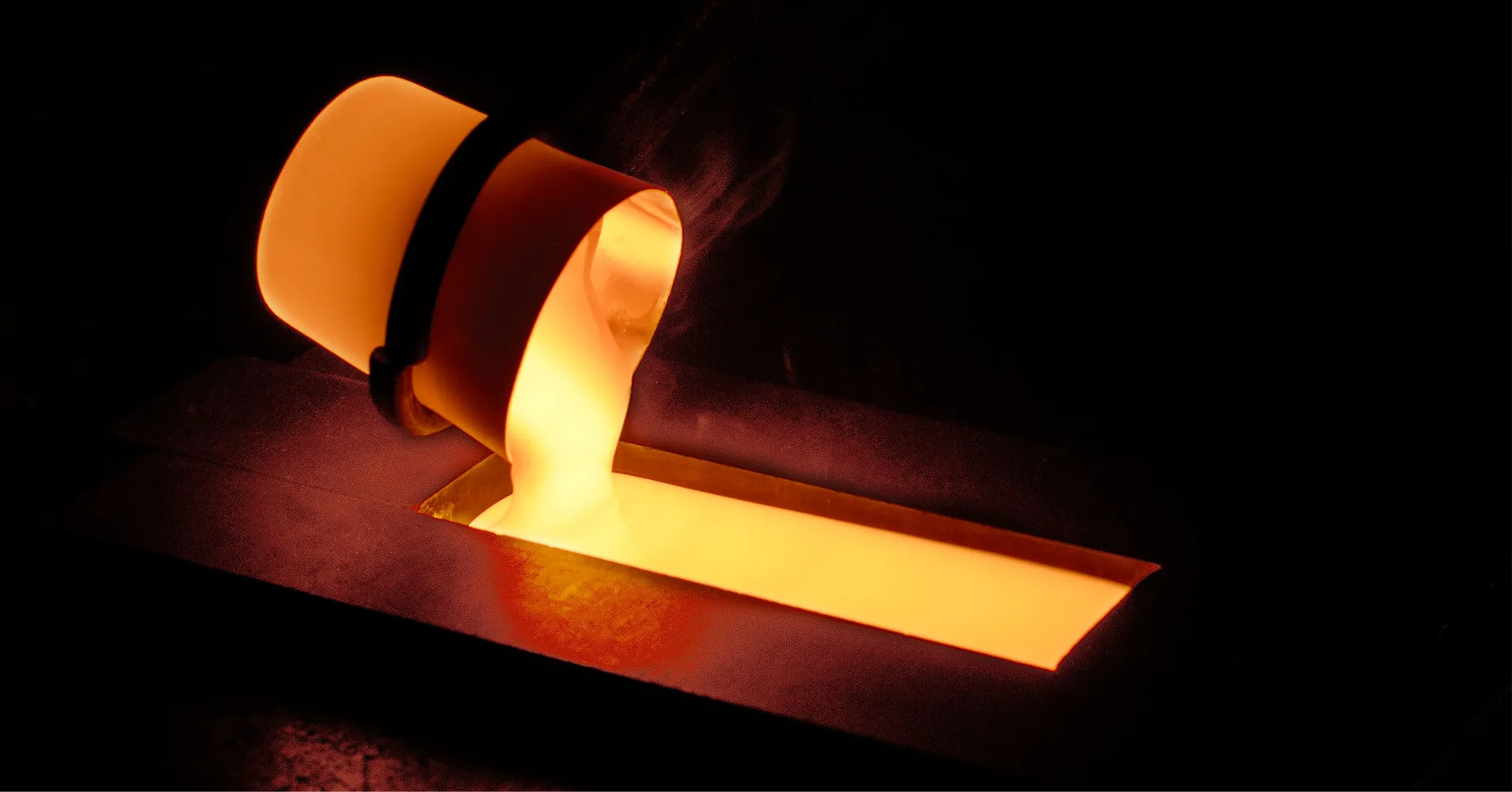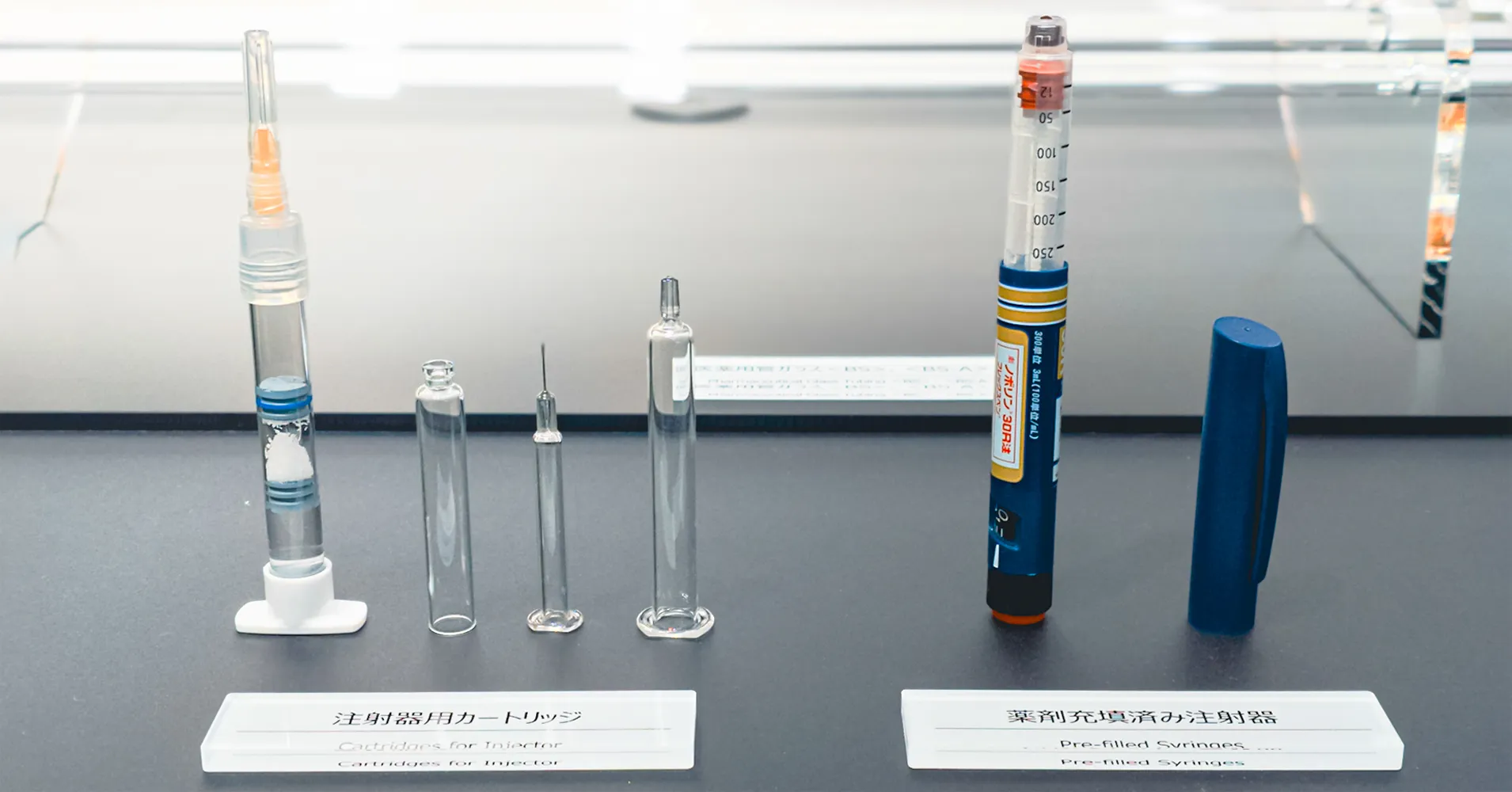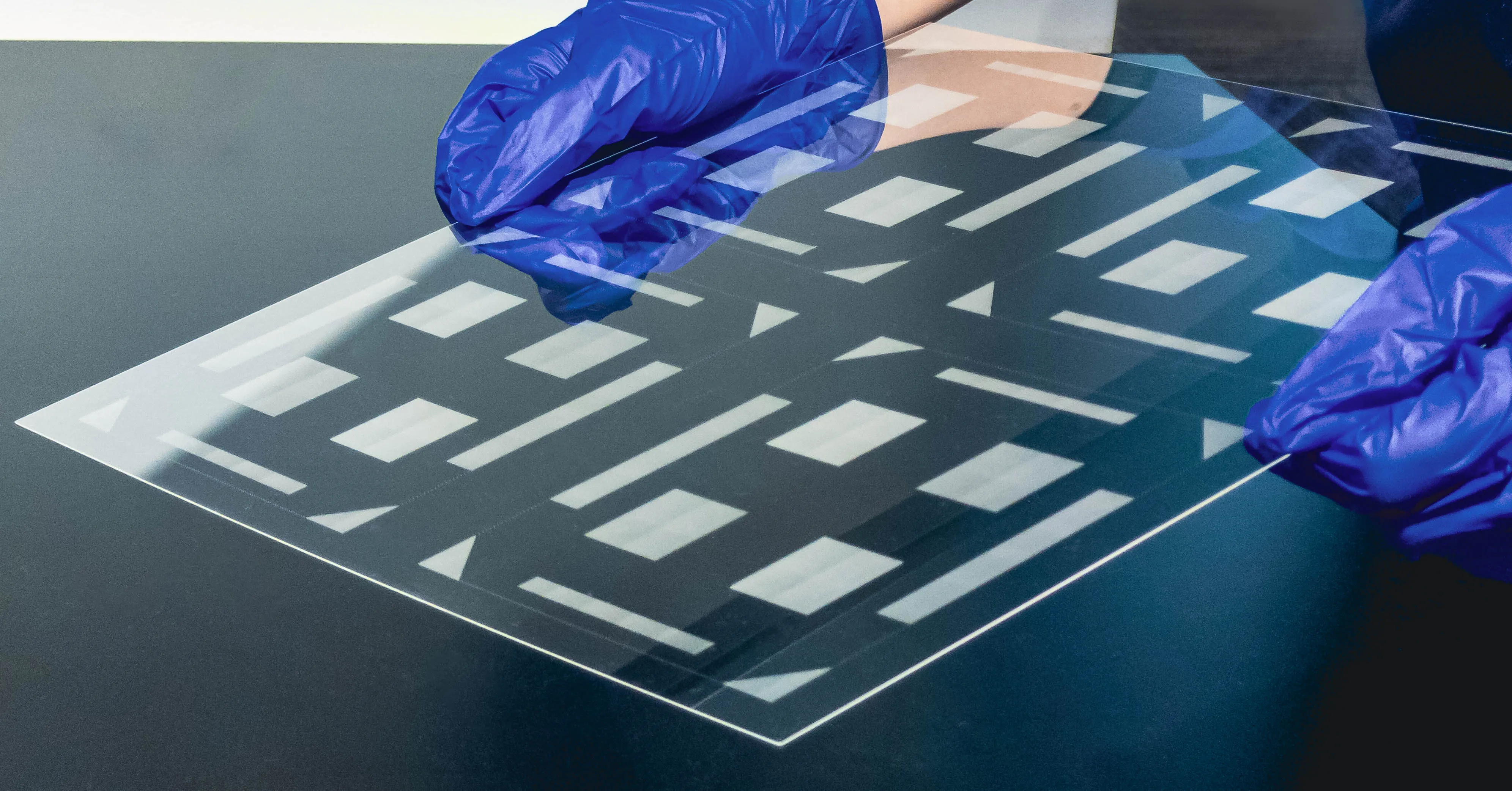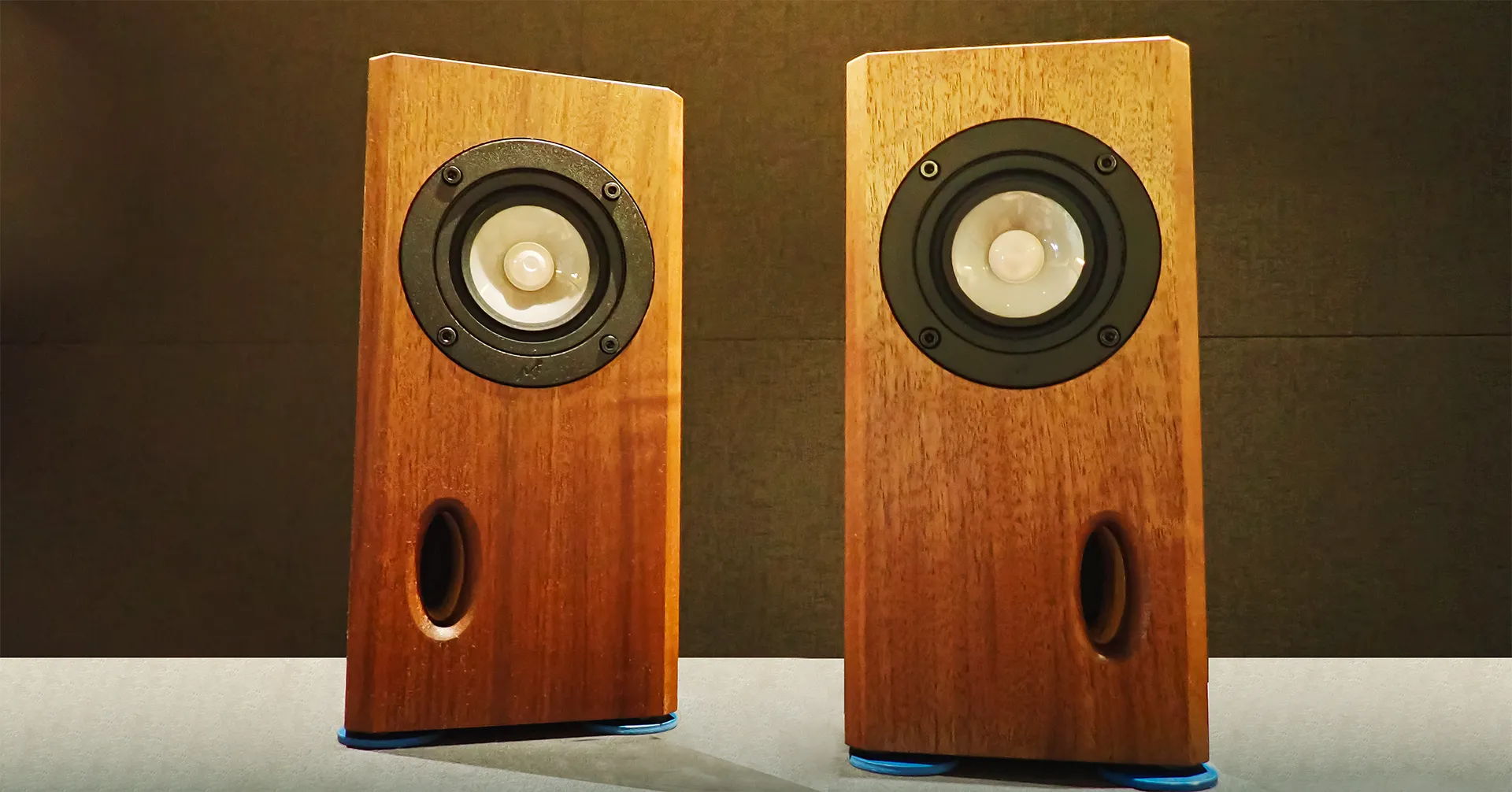NEG's Challenge of Supporting to Realize the Vision of "Sustainable Shiga"
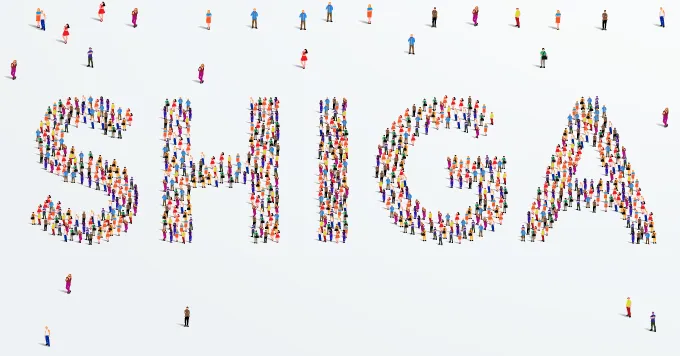
In 1949, Nippon Electric Glass (NEG) was founded on the shores of Lake Biwa in Otsu City, Shiga Prefecture. Since then, NEG has developed and manufactured various types of special glass and offered them worldwide for over 70 years. While NEG has grown into a leading special glass manufacturer with global operations, it continues to contribute to the community as a company that still operates all of its main domestic production bases in Shiga Prefecture, placing importance on harmonious coexistence with local communities and the natural environment.
Initiatives are currently underway to help the development of local communities. For example, NEG donates tens of thousands of flower seedlings grown at its plants to local communities; offers educational support to help children, the future leaders of our society, develop an interest in science; and supports the nurturing of next-generation human resources through industry-academia collaboration with local universities.
How should we continue such initiatives for local communities, which represent one of NEG’s CSR priority issues (“Environment,” “Diversity and Inclusion,” and “Community Contribution”), not as one-way support, but as activities that are well-received and ensure mutual development? We interviewed a person in charge who promotes CSR activities at NEG and who is deeply involved in community contribution activities.
- What initiatives are underway? Introduction to NEG’s community contributions
- Donating 23,000 flower seedlings to local communities each year
- Protecting forests to protect the Mother Lake: Contributing to forest conservation through the purchase of J-Credits
- Omi Eco Foster Campaign to protect beautiful Lake Biwa
- Nurturing next-generation human resources, who will be leaders of the future
- Developing Japan’s glass industry through close collaboration with universities and the creation of endowed chairs
- NEG’s CSR Committee, a system in place for enhancing effectiveness
- A wish to develop together through initiatives for local communities
What initiatives are underway? Introduction to NEG’s community contributions
Donating 23,000 flower seedlings to local communities each year
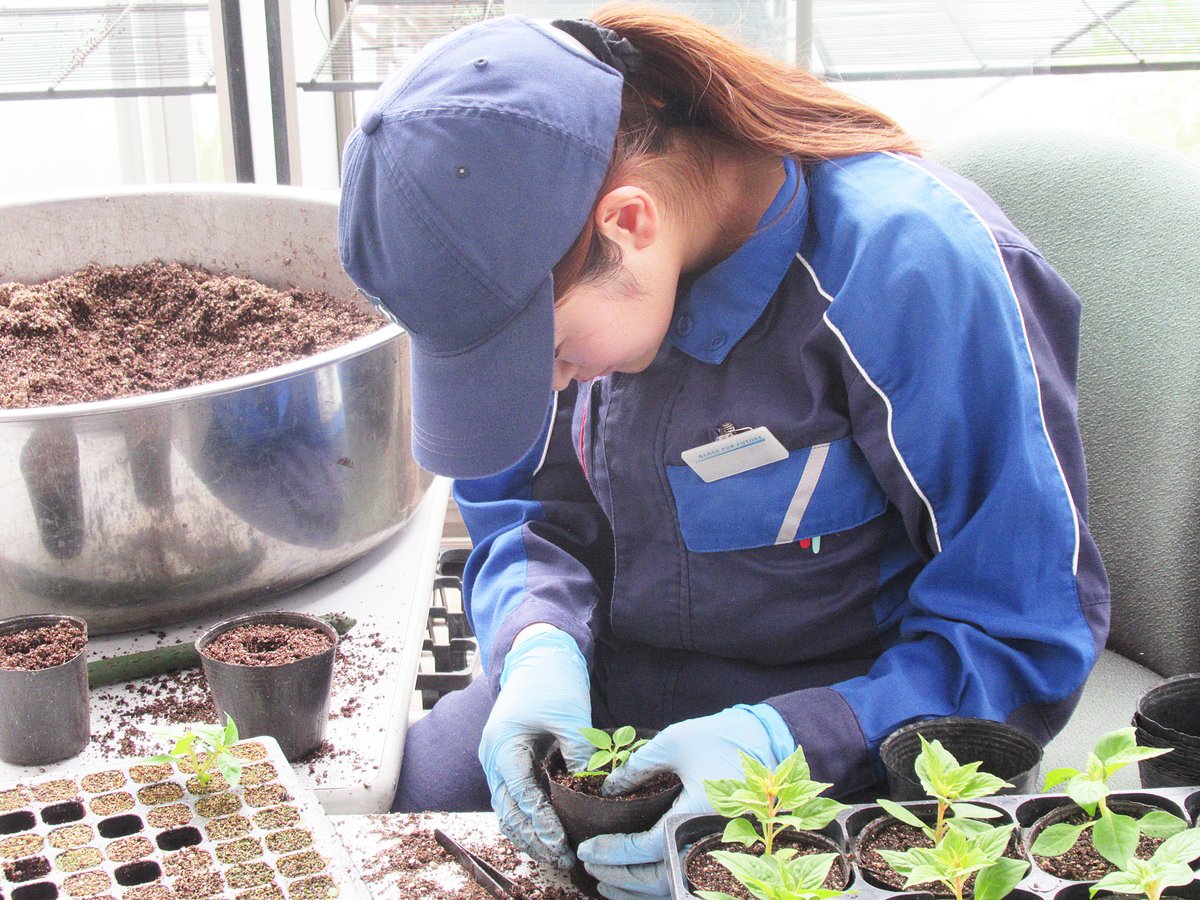
This is an initiative to donate seasonal flower seedlings, which are carefully grown at NEG’s plants, to local communities. In 2023, NEG donated as many as 23,000 flower seedlings to nearby kindergartens, schools, and neighborhood associations. The number of donated seedlings has been increasing every year. The initiative has become so well-accepted by local communities that we receive requests for the specific number they need.
“We were able to donate as many as 23,000 seedlings because the staff of Electric Glass Universupport Co., Ltd. , one of NEG’s subsidiaries, cultivated them from seeds with great care. Electric Glass Universupport Co., Ltd. was established in 1980 to promote and stabilize the employment of people with disabilities at NEG Group. It is the sixth special subsidiary company in Japan. NEG has been promoting employment of people with disabilities, which is related to diversity and inclusion in CSR. It aims to increase the employment rate for people with disabilities to 4.6%, far above the statutory requirement of 2.5%. Flower seedlings cultivated through this initiative bring joy to local communities. A virtuous cycle has been established in terms of diversity and inclusion and community contribution.”
Protect forests to protect the Mother Lake: Contributing to forest conservation through the purchase of J-Credits
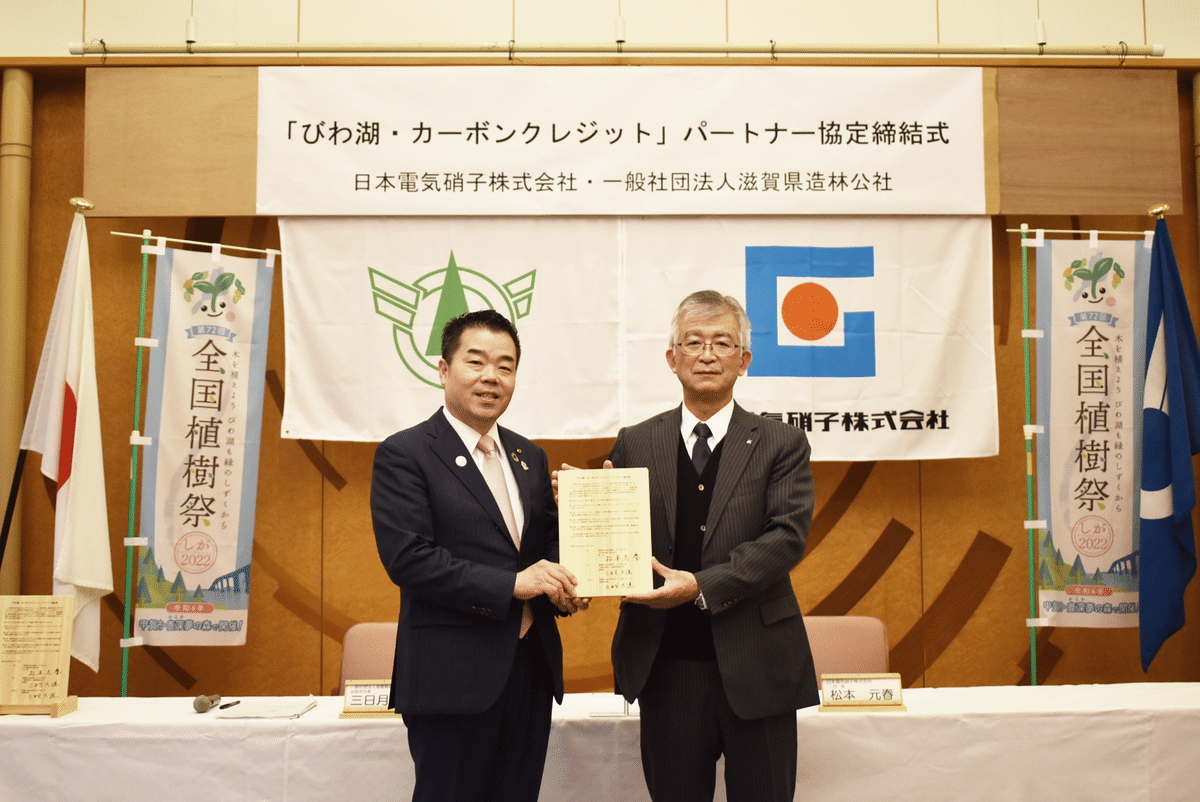
NEG supports forest conservation activities in Shiga Prefecture through the continual purchase of J-Credits.* The company has continually purchased J-Credits from the Konze Forestry Association in Ritto City, Shiga Prefecture since 2018 and through the Lake Biwa Carbon Credit Partner Agreement, which was concluded with the Shiga Prefectural Afforestation Public Corporation since 2021, to support the forest conservation initiatives of these organizations. Protection of forests, which retain and purify water, through these activities helps protect the water of Lake Biwa.
-
• J-Credit: A scheme in which CO₂ emissions reductions, which are achieved through the introduction of energy-efficient equipment and use of renewable energy, and CO₂ absorption amounts, which are realized through proper management of forests, are certified as “credits” by the Japanese government. Credits created under this scheme can be sold or purchased.
Omi Eco Foster Campaign to protect beautiful Lake Biwa
NEG participates in the Omi Eco Foster Campaign, which is organized by Shiga Prefecture. This is a monthly volunteer campaign to clean up the shores of Lake Biwa. NEG has participated in the campaign since its launch more than 20 years ago. NEG people engage in clean-up activities to protect beautiful Lake Biwa.
Nurturing next-generation human resources, who will be leaders of the future
As part of its community contribution, NEG also focuses on support for nurturing next-generation human resources. For elementary and junior high school students, NEG supports the Biwako Floating School, an experience-based learning program in which all fifth-grade elementary school students in Shiga Prefecture participate, and offers visiting lesson for students to experience the wonder of glass at the Otsu City Science Museum. For junior and senior high school students, NEG participates as a partner in “Support for Girl Students in Choosing Science Courses,” a program offered by the University of Shiga Prefecture under the auspices of the Japan Science and Technology Agency. NEG is also involved in initiatives aiming at various targets, such as the creation of endowed chairs at universities.
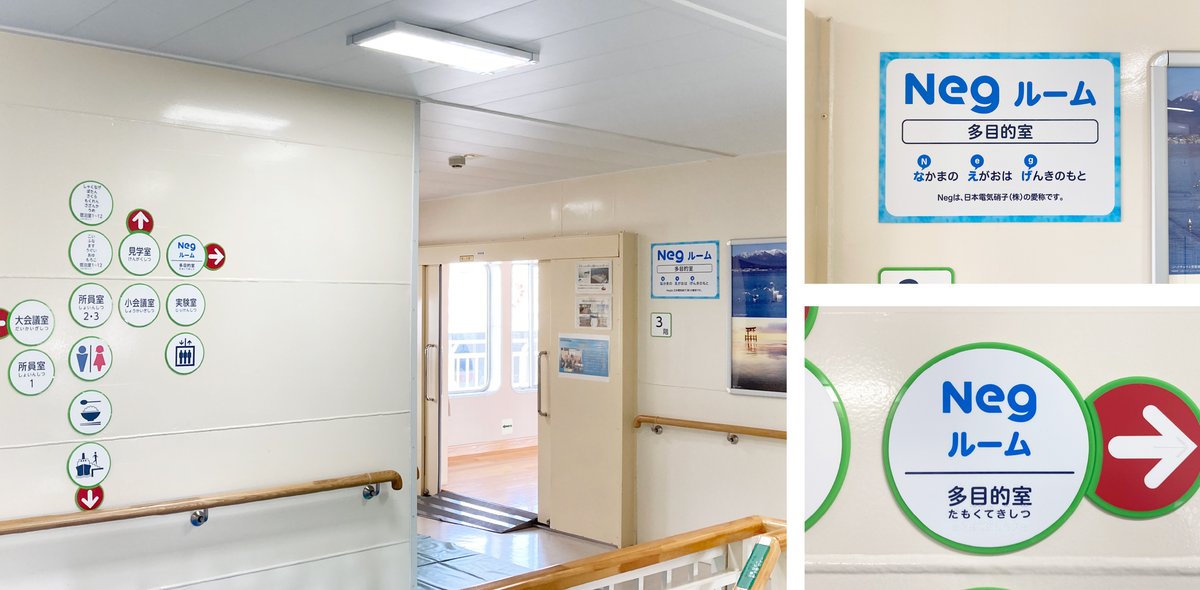
“The purpose of nurturing next-generation human resources varies depending on the age bracket. For elementary and junior high school students, we start by getting them familiar with glass. We also want them to know that there are various types of glass, in addition to cups and glass windows. As a special glass company, we hope to let children know that glass has different shapes and characteristics and that it is a great material useful to society. We hope that children will experience unlimited possibilities of glass through workshops and other activities.”
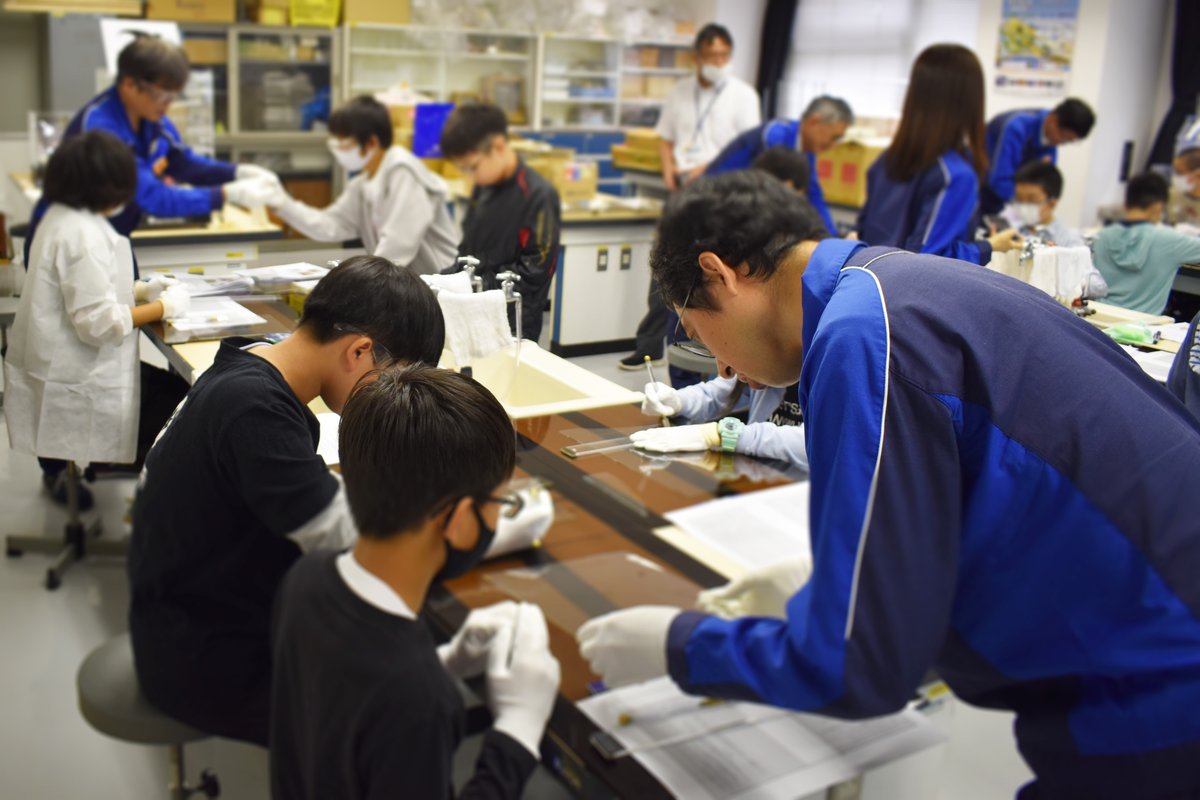
In the “visiting lesson” workshop at the Otsu City Science Museum, NEG staff offers classes to fifth- and sixth-grade elementary school students and junior high school students. The class is so popular that a lottery is held because it reaches full capacity shortly after applications open.
“In the visiting lessons, students attend a lecture on glass and experience glass cutting. Participants cut Invisible Glass™ (glass with minimal reflectance on the glass surface due to special thin film processing), an NEG product, using a diamond cutter and make a photo frame for inserting a photo of their own taken in the lesson or a certificate of completion for the lesson. Participants are delighted with the program.”
Developing Japan’s glass industry through close collaboration with universities and the establishment of endowed chairs
Meanwhile, NEG promotes research on glass through industry-academia collaboration with universities to support the nurturing of young researchers and engineers, who are laying the foundation for the future development of the glass industry. NEG continues to provide funds worth hundreds of millions of yen to establish endowed chairs. At present, the Center for Glass Science and Technology has been opened at the School of Engineering of the University of Shiga Prefecture, and the Basic Science of Glass Chair has been established at the Graduate School of Engineering, Kyoto University, to conduct basic research on glass, respectively.
“We started industry-academia collaboration with the University of Shiga Prefecture in 2007. We help create endowed chairs and conduct joint research. At Kyoto University, we have made endowed chairs available based on the trust method since April 2023. In the field of glass, the number of laboratories and researchers has been decreasing at universities in Japan. Notably, the situation for basic research is severe. In foreign countries, on the other hand, research on glass is very active. We had a sense of crisis that glass in Japan would fall behind the rest of the world without any action. This is why we decided to support young researchers through collaboration with these universities, which focus on research on glass. Under this initiative, comprehensive activities are underway, such as basic research through interaction with NEG’s R&D department, in addition to simply creating endowed chairs.”
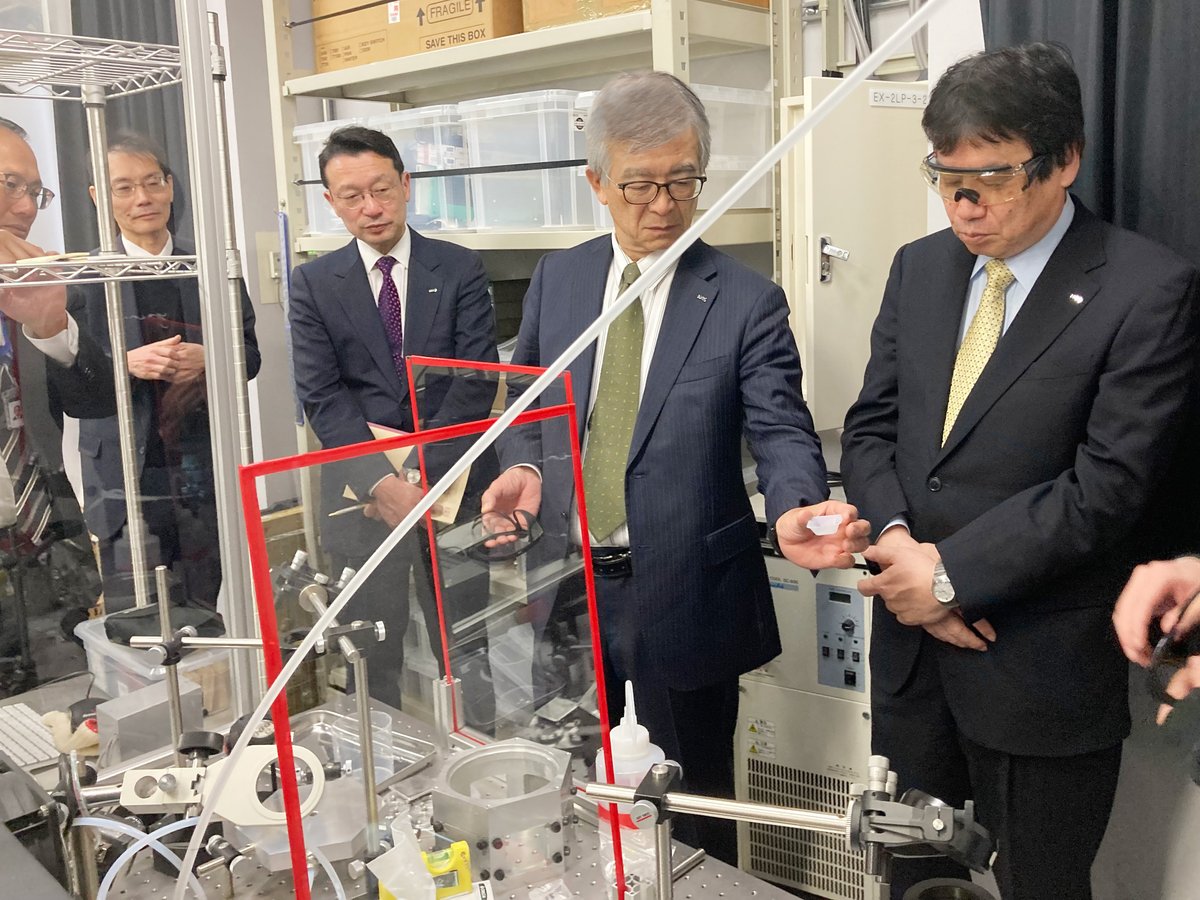
Chairman of the Board Motoharu Matsumoto (center) and President Akira Kishimoto (right)
Regarding NEG’s support, Program-Specific Professor Atsunobu Masuno of Kyoto University commented, “The initiative has a significant impact on expanding the possibilities for glass technology development in Japan.”
“There has been great progress in the analysis and calculation techniques to investigate the structure of glass, which has been largely unknown until now. Glass research is entering a new stage. However, the number of glass laboratories has been decreasing at universities in Japan. Under these circumstances, endowed chairs established by NEG have a major impact on academia. Continuous allocation of a generous budget to basic research will help us discover laws and principles which were previously unknown. This research environment is likely to serve as an incentive to attract excellent researchers in different fields.” (Comment from Program-Specific Professor Atsunobu Masuno)
Kyoto University already collaborates with more than 10 research institutions in Japan and overseas. Furthermore, it discusses comprehensive basic research themes with the University of Shiga Prefecture and NEG, and is formulating research plans. Such support to universities has motivated some graduates to join NEG.
NEG’s CSR Committee, a system in place for enhancing effectiveness
NEG can actively promote community contribution activities because it has a well-established system to enhance the effectiveness of CSR activities. To address various issues related to corporate sustainability while focusing on three priority issues in CSR, NEG’sCSR Commtitteehas three working teams, namely, the “Environment team”, “Diversity and Inclusion team”, and “Community Contribution team,” which tackle their respective issues.
“NEG’s CSR Committee holds holistic discussions about the CSR vision and details of activities, makes proposals to the top management, and deploys activities flexibly. To disclose information more appropriately, a cross-organizational structure has been established in which department heads who are related to certain issues participate in the respective teams as members.”
A system is in place to instill a sense of ownership regarding the respective issues and implement practical and effective initiatives toward solving problems through the participation of relevant departments.
A wish to develop together through initiatives for local communities
NEG regards the initiatives for local communities as a priority issue in CSR and constantly considers what it can do for them. What is the vision that NEG hopes to achieve through community contribution?
“We hope to develop with local communities through contribution activities and hear local people say, ‘We are glad to have NEG in our community.’ To that end, we ensure communication with local communities so that we can properly identify social issues that they face. We are a manufacturer, so it is difficult to completely eliminate our environmental impact. Against this backdrop, to continue our business in this region, we must ensure harmony with society and nature. We hope to continue our initiatives that are welcomed by local communities and that help us develop with them. Our goal is to create such a virtuous cycle.”
Only steady efforts on a daily basis can gain the trust of local communities. NEG will continue to work on community contribution through trial and error. For details of these activities, please refer to the ESG Databook and Integrated Report」issued by NEG.
